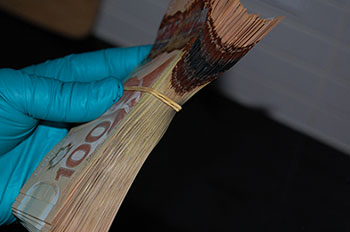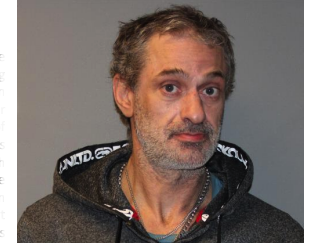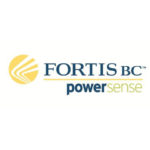Fraud Prevention Month underlined by 71-year-old BC man defrauded of over $16.000
A trusting, 71-year-old new Canadian from Coquitlam has been stripped of tens of thousands of dollars by a criminal. As part of Fraud Prevention Month, Mounties are hoping that you will help tell this story and prevent another person being victimized.
Scammers are targeting a small, vulnerable percentage of our population with high-pressure scare tactics, says Cpl Michael McLaughlin with Coquitlam RCMP. Criminals are counting on our collective silence. Only by educating our community can we help stop these crimes.
On March 1, 2020, this most recent victim got a phone call from ‘corporate security’ at a Canadian bank who told her that her credit card was ‘compromised.’ In order to ‘recover the money’ she was pressured into purchasing over $16,000 in gift cards at three different stores. Once the numbers for those cards were shared over the phone, the money was essentially gone.
For many scams, the best defence is to verify. If it’s a legitimate call from the bank or the government, you’ll be able to hang up, talk to a trusted friend, then look up the bank’s number yourself and call them back, says Corporal McLaughlin. And this is crucial: banks and government agencies will never, ever request payment in gift cards, Bitcoin or any form of online or virtual credit.
- The bank security scam is number 1 on the Coquitlam RCMP’s top 5 most concerning scams. Best defence: Hang up and verify. You will never be able to ‘help’ a real bank, or be able to pay your bank bills, with gift cards.
- Canada Revenue Agency (CRA) Scam: You get a call from the ‘CRA’ (or any government agency) saying you owe tax and you’ll be arrested if you don’t send money right now, usually using a cryptocurrency (Bitcoin) machine. Best defence: Hang up. You can’t be arrested by CRA or any other government agency for debt. Nor can you pay government bills with Bitcoin.
- Wallet theft fraud: Leaving your wallet or purse in your car, your shopping cart, or your locker creates an opportunity for scammers. They will quickly use your credit cards to rack up purchases before you realize they’re missing. Best defence: Never leave your wallet or purse in your car or unattended. Carry only the cards you need, and never carry your SIN card.
- Online job scam: You’ve posted a resume online. Now, a ‘boss’ wants you to deposit a large cheque, keep a ‘commission’, and send the bulk to the ‘boss.’ When the cheque bounces days later, you owe the bank the whole cheque. Best defence: Never deposit a cheque on behalf of another person.
- Publisher’s Clearing House Scam: You’ve won a prize! All you need to do is pay a ‘tax’ before you get your winnings. Best defence: You don’t pay taxes on lottery winnings. More importantly, you cannot win a contest you didn’t enter.
For more information on evolving scams, or to report a scam where you haven’t lost money, go to the Canadian Anti-Fraud Centre.
If you think you’ve lost money to a scam, call your police of jurisdiction.

























Comments